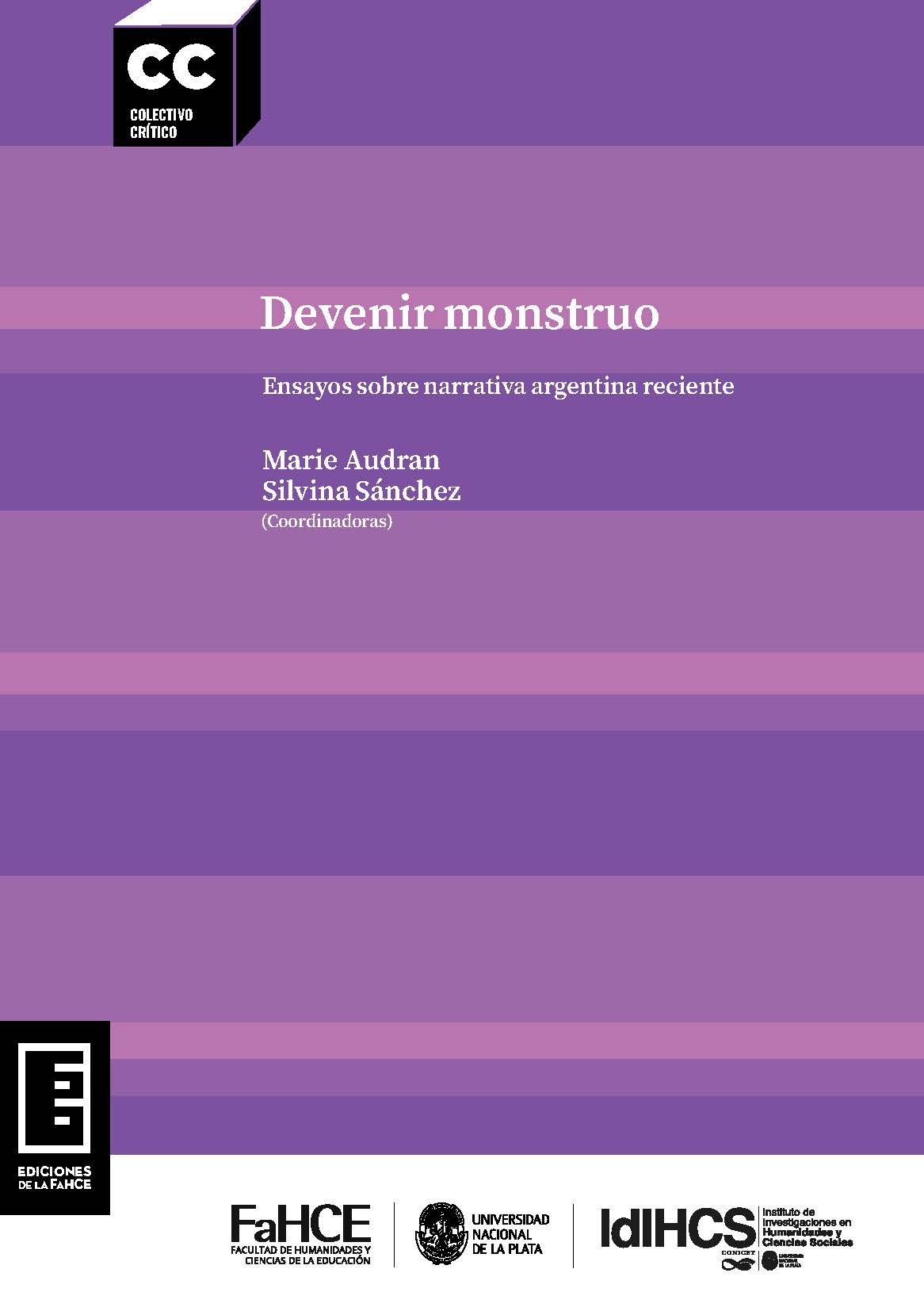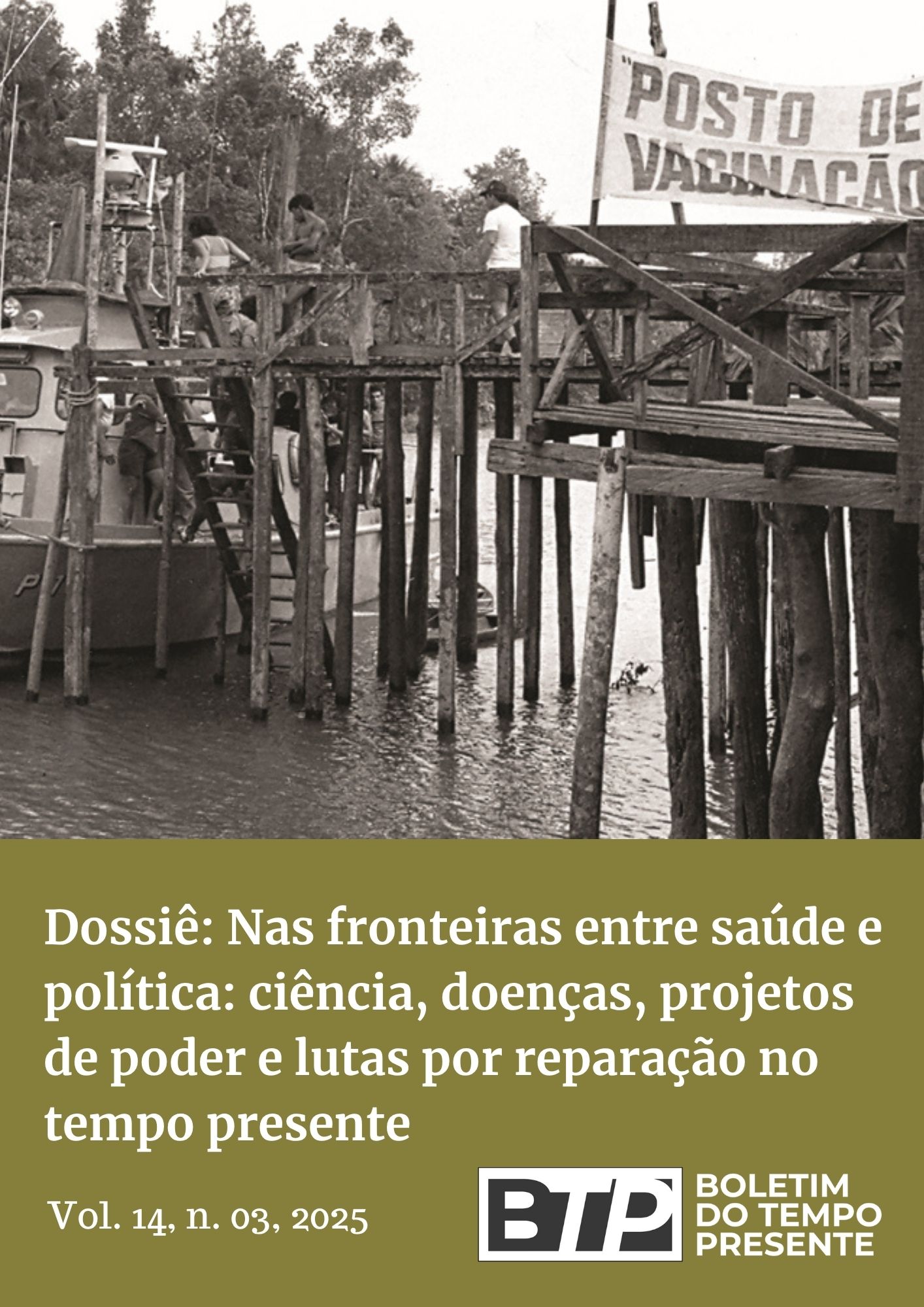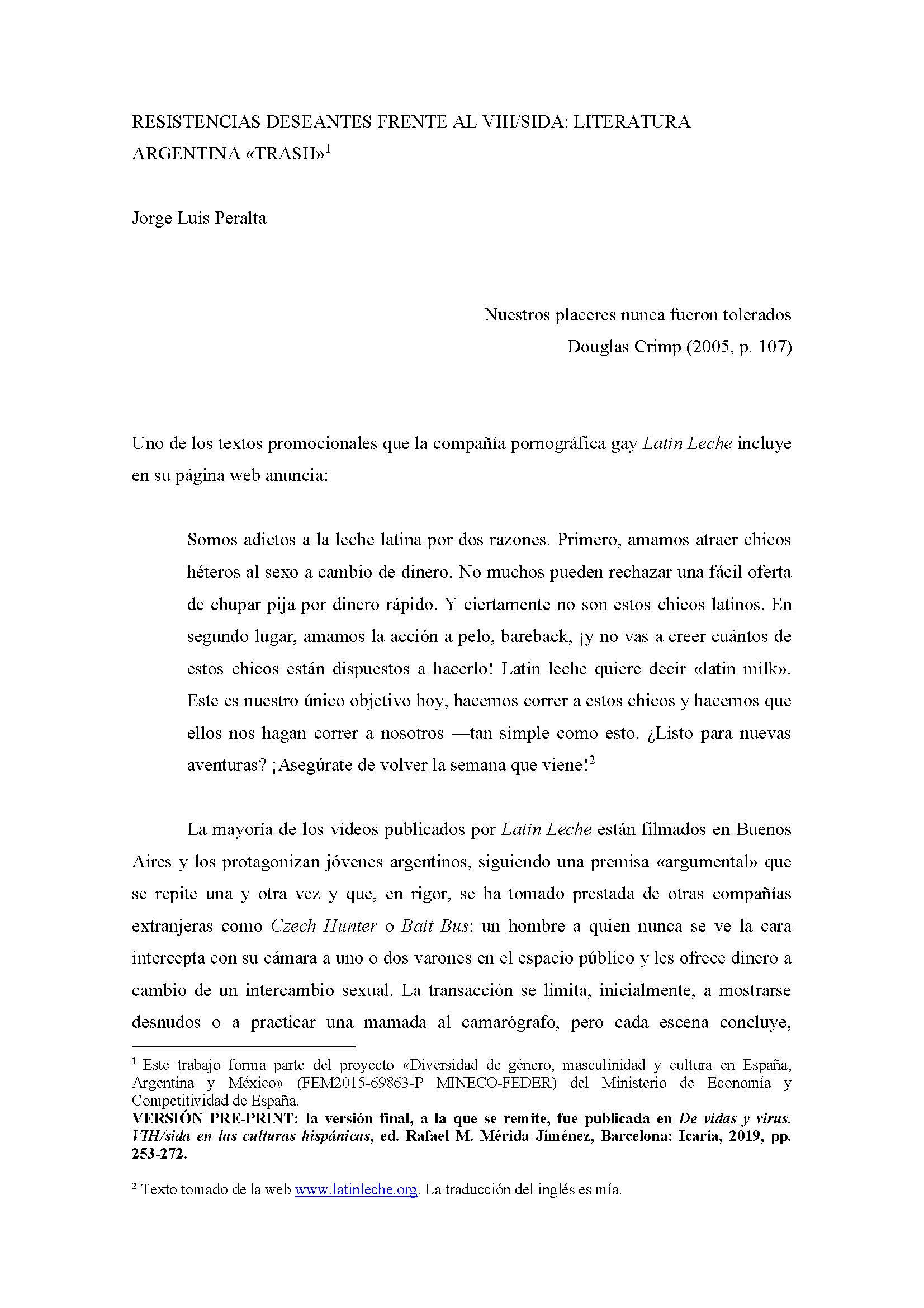Catàleg general VIH

Cuerpos queer entre la enfermedad y el deseo. El giro subjetivo y el impacto del VIH/sida en la literatura argentina
Resum
This dissertation explores first-person accounts by Argentine queer writers narrating experiences of living with HIV/AIDS, published between 1984 and 2016. I argue that Néstor Perlongher, Pablo Pérez, Daniel Link, and Marta Dillon constitute a literary series by uniquely contributing to the subjective movement of Argentine literature that began after the dictatorship of 1976-1983. The selected works analyzed here are politically radical, yet they showcase an intimate narrative of the body and the self. Thus, I posit that these authors participate in a subjective movement by narrating illness both as a theme and as an aesthetic exploration of the HIV/AIDS experience that extends beyond mere suffering. Through analyzing a variety of genres, such as literary essays, poems, diaries, chronicles, letters, and more, this dissertation furthers the conversation on how queer writers, in the face of hostile sociocultural contexts, explores desire and joy and finds ways to live with illness without being at constant odds with it. I propose to understand these experiences as a renovated alternative that both addresses and transcends the correlation of violence and homosexuality recognized by scholars in the Argentine literary field before the epidemic.The introduction reconstructs historic and sociocultural contexts, and analyzes how the multifaceted HIV/AIDS epidemic unraveled as a biomedical phenomenon with a discursive component that persistently reactivated past horrors: old imaginary legacies permeated by homophobic metaphors that distort epistemologies. The first chapter analyzes the essays and poetry of Néstor Perlongher, a writer and activist who identified the moralizing rhetoric around the epidemic early on. The second chapter covers Pablo Pérez’s letters and diary, which offer a detailed exploration of erotism in times of high uncertainty and paranoia around illness. In the third chapter, Daniel Link’s experimental novels propose a more humorous and parodic perspective on the ill experience. The fourth and final chapter analyzes how Marta Dillon diversifies the subjective movement. Through her urban chronicles, the “I” transforms into a “we”, and illness is no longer perceived in detriment of a good life.
Autoria:
HERNÁNDEZ, Leandro Arsenio
Autoria institucional: UCLA (University of California, Los Angeles)
Autoria institucional: UCLA (University of California, Los Angeles)
Fitxa bibliogràfica
- Any de publicació:
- 2025
- Publicació:
- Los Angeles : University of California
- Descripció física:
- xii, 245 p.
- Format:
- Llibre
- Tipus de document:
- Tesi doctoral
- Notes:
- A dissertation submitted in partial satisfaction of the requirements for the degree Doctor of Philosophy in Hispanic Languages and Literature
- Més informació:
-
Continguts relacionats
També et pot interessar
-
Reivindico mi derecho a ser seropositivx: monstruosidad, devenir y abyección en la literatura de VIH-sida de la nueva narrativa argentina
-
Cuando el “safe sex” contaminó la imaginación : narrativas culturales, disidencias y rock durante la epidemia de VIH/sida. Argentina, 1982-1992
-
Resistencias deseantes frente al VIH/sida: literatura argentina “trash”





